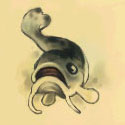|
I have two white wines I'd love to suggest to new people. The first is one that was recommended to me by this very thread. That is Bourillon-Dorléans La Coulée d'Argent Vouvray and drat is it tasty. It pairs well with basically everything you'd expect a white to, but also fine by it's own. In my rotation of must haves. The second is a white that's surprised a few people new to wine. Castillo de Molina Sauvignon Blanc is wonderfully acidic and bitey and almost lemony in flavour. Really nice I find and brilliant to wash those pork chops down. Those two are probably the best whites I've found in the price range. If anyone has other suggestions to try I am all ears.
|
|
|
|

|
| # ? May 10, 2024 07:08 |
|
gay picnic defence posted:This is the opposite of a sound wine. If the popularity of natural wine increases it will certainly become much more a marketing gimmick than a philosophy or viticultural method. But I disagree with your equating the flavour of the grapes with the flavour of the terroir. While the term terroir can be quite out there, I do like the simple core of it and certainly as it sits in a historical, pre-globalization context. If you want to capture the flavour of the grapes, eat some grapes. But making wine necessarily requires some fermentation. Many of the desirable culinary items of history involves fermentation, from Roman Garum to German Sauerkraut to Swedish Surströmning. Yeast and bacteria are distributed in varying concentration and in various strains around the world, the locally available fermenting agents and their particular chemical effects has probably been a very important contributor to the rise of certain regions as viticultural centers, before science caught up with it all. The effect of the chemicals produced by the microbes that feed on the grape compounds is perhaps more of a wine expression than the raw grape compounds. So in my opinion, spontaneous fermentation or sourcing yeast in the same land that the grapes grow in, is more of an expression of the particular land than using yeast selected for minimal effect on flavour. Wine faults are as natural as wine qualities. Phylloxera is as natural as botrytis. The idea of it is that the result, warts and all, is how nature through fermented grape juice presents itself with minimal intervention. With total control of the chemistry, you can make predictable, palatable results just about anywhere in the world. If you give up most of that control, you are beholden to the biology itself. Better wine? In many cases, perhaps not. Gimmicks for unshaven moon dancing Earth hippies? They probably love it. But to me, as mentioned, the result is fun and interesting and I've never been put off by any wine - yet.
|
|
|
|
gay picnic defence posted:This is the opposite of a sound wine. I wish that were the case, as I said, my personal palate has a pretty low tolerance for some of these traits, brett in particular. But some things we traditionally think of as faults are inseparably apart of some wine. Significant levels of brett are a part of Bordeaux. VA as well. Acetaldehyde dominates non-oxidative Sherries. I can't reject a bottle as unsound if it's typical of the wine! If the winemaker knowingly allows or intends a fault to be there, and the wine tastes of that fault, it's sound.
|
|
|
|
Kasumeat posted:I wish that were the case, as I said, my personal palate has a pretty low tolerance for some of these traits, brett in particular. But some things we traditionally think of as faults are inseparably apart of some wine. Significant levels of brett are a part of Bordeaux. VA as well. Acetaldehyde dominates non-oxidative Sherries. I can't reject a bottle as unsound if it's typical of the wine! If the winemaker knowingly allows or intends a fault to be there, and the wine tastes of that fault, it's sound. This isn't the way the term is commonly used. Sound simply means no detectable levels of faults. Faulty wine can still be good wine, it's when the faults take center stage and overwhelm any fruit that you have a problem. If I had a wine with brett or VA in a blind tasting and I said the wine was sound because I think it's typical of the region I would be wrong.
|
|
|
|
I'm looking to pick up a bottle of wine for my girlfriend, but I'm not much of a wine drinker myself and I'm not sure what to get. She likes really sweet red wines, so I'm guessing some kind of dessert wine? Basically, what are a couple options for really sweet reds that aren't super expensive?
|
|
|
|
Kasumeat, the reason I brought up "Natural Wine" was because on the one hand, Cornelissen is most certainly a natural winemaker par excellence, and on the other discussion of biodynamics typically pairs with discussion of natural wine before too long - someone was bound to bring it up, so why not me?
|
|
|
|
Full Fathoms Five posted:I'm looking to pick up a bottle of wine for my girlfriend, but I'm not much of a wine drinker myself and I'm not sure what to get. She likes really sweet red wines, so I'm guessing some kind of dessert wine? Basically, what are a couple options for really sweet reds that aren't super expensive? Trader Joe's carries a ruby port called Porto Morgado for about $8? a bottle. For the price it's really great.
|
|
|
|
Port is more of an after-dinner drink in its own right than something you'd enjoy on its own or with a main meal (in my unlearned opinion), for when the cheese board and crackers come out. I like dessert, but I'd take port, stilton, and digestive biscuits over any pudding any day. If you are making dinner for her, it's a classy finish, for cheese go with something similar to a strong English cheddar (I am led to believe American cheddar is different), something blue, a brie or camambert, and something with fruit in - my favourite is Wensleydale with cranberries or apricots. I don't like red cheese (like Red Leicester) with port. To drink with a film or with dinner, for a sweeter lighter type of red, I'd suggest a merlot-pinotage. It is no Lambrusco, and not as sweet as port, but for a red I find it sits at the lighter end pf things. I do like deep full-bodied reds, though, so my spectrum may be off. Also my experience comes from indulging in wine, whereas other people in this thread are actually qualified. Pure pinotage has had some rather harsh criticism, but I find when blended, the merlot carries it nicely. If you ask someone in a wine shop for help, by the way, be aware that sweet isn't the same as fruity. simplefish fucked around with this message at 06:12 on Oct 20, 2013 |
|
|
|
Crimson posted:This isn't the way the term is commonly used. Sound simply means no detectable levels of faults. Faulty wine can still be good wine, it's when the faults take center stage and overwhelm any fruit that you have a problem. If I had a wine with brett or VA in a blind tasting and I said the wine was sound because I think it's typical of the region I would be wrong. So you are never calling a bottle of typical Savennieres, Bandols, or Lacrima di Morro D'Alba sound? Because the former will always be defined by oxidation, Bandols will always be defined by brett, and the latter will always be defined by VA. Edit: Not trying to sound (heh) like a dick, but my honest understanding of soundness is that it's a relative thing, and that when you are making that judgment, what you are judging it on is based on what the wine is "supposed" to taste like. Kasumeat fucked around with this message at 08:02 on Oct 20, 2013 |
|
|
|
Kasumeat posted:So you are never calling a bottle of typical Savennieres, Bandols, or Lacrima di Morro D'Alba sound? Because the former will always be oxidised, Bandols will always have brett, and the latter will always have VA. Correct, I wouldn't call those sound. I would miss points under any exam format (Court of Master Sommeliers, WSET, ISG, etc.) for calling them sound, instead of correctly identifying the faults. Again, you can't think of a wine displaying what we consider faults to mean that the wine is undrinkable. Correctly identifying the faults is a large part of the deductive process in blind tasting. High levels of VA and raisin fruit? Probably Amarone. Brett with tart and peppery cran/raz? Northern Rhone, etc. Of course the end all be all of wine drinking doesn't lie within the confines of the professional certifications, but they're good guidelines. The way you're using the word sound makes it nearly meaningless, as it would really be in the eye of the beholder whether any given wine is sound. The professional definition is very specific, any detectable oxidation, TCA, brett, H2S, etc. and the wine is not considered sound.
|
|
|
|
Crimson posted:Correct, I wouldn't call those sound. I would miss points under any exam format (Court of Master Sommeliers, WSET, ISG, etc.) for calling them sound, instead of correctly identifying the faults. Again, you can't think of a wine displaying what we consider faults to mean that the wine is undrinkable. Correctly identifying the faults is a large part of the deductive process in blind tasting. High levels of VA and raisin fruit? Probably Amarone. Brett with tart and peppery cran/raz? Northern Rhone, etc. Sure, a graded exam is one thing, but I don't think that's the most important definition of soundness. What really matters is whether I can serve this wine to a table.
|
|
|
|
What's the best way of drinking wine alone, and in limited quantities? Like if I wanted to have one glass a day from the same bottle, what's the best way of preserving its freshness? I came across a nitro tap system, which seems like the sort of setup I'm looking for, but I have no idea how well these things work.
|
|
|
|
that Vai sound posted:What's the best way of drinking wine alone, and in limited quantities? Like if I wanted to have one glass a day from the same bottle, what's the best way of preserving its freshness? I came across a nitro tap system, which seems like the sort of setup I'm looking for, but I have no idea how well these things work. You want a Coravin. We just tasted a trial of a bottle we poured a glass out of 6 months ago, and it was almost indestructible from the control. (They're $300 though.)
|
|
|
|
Nah get one of the bad boys Having half your cellar on tap in the middle of the lounge room would loving own.
|
|
|
|
gay picnic defence posted:Nah get one of the bad boys I got to check out one of these made by WineEmotion when I did a recent piece on a local wine bar. Like the Coravin, argon is pumped in as the wine is poured (also, convenient buttons for a 2, 4, or 6 oz. pour). I got to taste a few wines that I was familiar with, and even though the bottle had been open for a few days, it was just like a freshly opened bottle. So far they don't serve anything particularly old or expensive, and keep in mind if it's something that needs decanting, you're going to have to let it sit in the glass for a while. I'm also curious as to how the system deals with sediment/cork debris, not really a problem with the fairly young wines that were on tap that day. They already had one dessert wine available, and are considering a few Ports.
|
|
|
|
I'm pretty sure you can decant wines prior to using it because you get the initial oxidation but once the DO is consumed by making your wine more delicious the inert gas stops any further oxidation from taking place. That would sort out any problems with cork and sediment too.
|
|
|
|
I really like wine made from other fruits than grapes, such as blueberry and cherry and so on. My family used to maked gallons of the stuff every year when we had a big garden. These days I have to buy it. Anyone got some suggestions for wine made from something other than grapes ( that you could find in a store) ?
|
|
|
|
Baudolino posted:I really like wine made from other fruits than grapes, such as blueberry and cherry and so on. My family used to maked gallons of the stuff every year when we had a big garden. These days I have to buy it. Anyone got some suggestions for wine made from something other than grapes ( that you could find in a store) ? Due to my fondness for being willing to taste almost anything when it comes to wine and spirits, I have had wines made from: strawberries, blackberries, dandelions, rhubarb, corn, apples, plum, peach, elderberry.... Since I don't really like sweet wines, most of these were not entirely to my liking, but were interesting. I actually enjoyed the dandelion, apple, and corn. Right now I'm sipping on the 2009 Poggio Valente Morellino di Scansano. Nice, pleasant, and affordable Tuscan wine.
|
|
|
|
I'd add elderflower and apricot to that list.
|
|
|
|
Baudolino posted:I really like wine made from other fruits than grapes, such as blueberry and cherry and so on. My family used to maked gallons of the stuff every year when we had a big garden. These days I have to buy it. Anyone got some suggestions for wine made from something other than grapes ( that you could find in a store) ? Last year I did a roast pork tenderloin for Thanksgiving dinner and had a bottle of Pasek Cellars Cranberry wine that was great. It's from a smaller local Washington winery so it may not be available depending on where you are. The About Us page has more details.
|
|
|
|
An interesting article on natural wine. http://arvidrosengren.com/2013/10/26/my-thoughts-on-natural-wine/ I didn't know the restaurant scene was quite that crazy, but it does make sense. I suppose the Norwegian state owned wine shop has sheltered me from the most long bearded, moon crazy druid wine.
|
|
|
|
Is there a way to tell if a wine has gone bad from improper storage or if it was bad to begin with? Or are there too many different ways the flavor could be affected that it's not possible to tell? On an unrelated note, what wines are a good way of introducing myself to Spanish wines? that Vai sound fucked around with this message at 04:23 on Oct 30, 2013 |
|
|
|
Wine that has been stored badly can develop some unique flaws. Like wine stored too hot can pick up a jammy character, and a fluctuation in temperatures during storage can oxidise it (browning in reds, darkening/browning in whites). A bad cork can lead to an oxidised wine too though so it isn't definitive, and of course someone might have just bottled an oxidised wine.
|
|
|
|
that Vai sound posted:Is there a way to tell if a wine has gone bad from improper storage or if it was bad to begin with? Or are there too many different ways the flavor could be affected that it's not possible to tell? Get something nice and meaty, like a slow-cooked rack of lamb or a good ternera, and you're looking for Campo Viejo (it comes in several kinds, I'm partial to the Gran Reserva, if you like it lighter take their Crianza (iirc it's labelled Tempranillo) They're my favourite medium-price Spanish wine. They're also Riojas. If you want to try another region look for Valdepenas for another I'm fond of.
|
|
|
|
Is there a good resource for getting into fortified wine? I want to start working my way into it, but have a tight budget and help not wasting money would be appreciated. I have a bottle of Dry Sack sherry and Taylor Fladgate 10 year tawny port in the basement to start, right now.
|
|
|
|
that Vai sound posted:Is there a way to tell if a wine has gone bad from improper storage or if it was bad to begin with? Or are there too many different ways the flavor could be affected that it's not possible to tell? I'm really fond of R. Lopez de Heredia's wines. The Vina Cubillo is their crianza Rioja and its incredible, but everything they make is great. Spanish wine is great because you can usually find great values for terrific wines. Another great region to check out would be Ribiero del Duero. For getting into fortified wine, a good wine bar is probably your best bet to discover what you like without having to buy a whole bottle. There's one near me in Brooklyn that actually pours sherry for free during happy hour!
|
|
|
|
After watching Somm (Which is great and everyone should watch) I realised I have no loving clue with wine specifics. I can pick out general things like citrus or apricots and the like, even herbs and spices. But to the extent they go? Holy poo poo. I know we have some Somms around so I'd love to hear how they got their nose around things, or just posters in general. How can I get more specific apart from drink more wine? Are there certain smells/flavours predominant in certain wines? I notice Merlot tends to have spices, Pinot Noir is plummy, dark fruits and stuff like that. Any tips? I'm not out to show up my friends, just curious.
|
|
|
|
syntaxfunction posted:After watching Somm (Which is great and everyone should watch) I realised I have no loving clue with wine specifics. I can pick out general things like citrus or apricots and the like, even herbs and spices. But to the extent they go? Holy poo poo. I know we have some Somms around so I'd love to hear how they got their nose around things, or just posters in general. How can I get more specific apart from drink more wine? Are there certain smells/flavours predominant in certain wines? I notice Merlot tends to have spices, Pinot Noir is plummy, dark fruits and stuff like that. Any tips? I'm not out to show up my friends, just curious. Repetition, smelling everything around you and paying attention, trying to commit the smell to memory, and drinking a whole bunch of fuckin wine. It's best to simply imagine all the things you could be holding in your hands instead of wine, what else it could remind you of. I usually close my eyes when smelling to help with that. But hands down the best way to build that vocabulary and help you put into words what you're smelling is to be around an experienced taster and simply ask them to describe a wine while you both taste. Yes there are certain smells/flavors from each grape, and more specifically from each region. Grapes tend to exhibit similar characteristics no matter where they're grown. Pinot Noir, for example, tends to show red fruit like cherry and strawberry. To narrow down a region I'll think more critically about the condition of those red fruits. Tart or slightly under ripe? Maybe Burgundy. Ripe and lush? Maybe Russian River Valley, and so on. In fact I would swap your descriptors there if I'm being honest. Merlot is defined by its plum. If I get plum I'm immediately thinking Merlot. Pinot Noir tends to show spice notes (cinnamon, clove, vanilla) coming from the high proportion of new French oak that's commonly used with the grape. Although I guess spice is pretty vague, I've gotten anise, eucalyptus, and licorice from Merlot. There's a level of subjectivity, of course, but probably not as much as you might think. A lot of the compounds in wine bind to your olfactory receptors the same way as the smells they're commonly associated with.
|
|
|
|
Crimson posted:Repetition, smelling everything around you and paying attention, trying to commit the smell to memory, and drinking a whole bunch of fuckin wine. It's best to simply imagine all the things you could be holding in your hands instead of wine, what else it could remind you of. I usually close my eyes when smelling to help with that. But hands down the best way to build that vocabulary and help you put into words what you're smelling is to be around an experienced taster and simply ask them to describe a wine while you both taste. Unfortunately I live in an area devoid of, shall we say, wine lovers. Basically, most people here think alcohol is to get drunk on and wine is for sissies who can't handle a rum and coke. I've been trying to find a club or something where I can do tastings but unfortunately I don't like going to these sorts of things alone and would have to convince someone to come with me. And yeah, swap the descriptors. I forgot which was which for a moment. I just remembered two dark reds tasting wildly different.
|
|
|
|
There are some really excellent books that can help - I'll let other people make more recommendations, but How to Taste by Jancis Robinson is not a bad place to start.
|
|
|
|
syntaxfunction posted:Unfortunately I live in an area devoid of, shall we say, wine lovers. Basically, most people here think alcohol is to get drunk on and wine is for sissies who can't handle a rum and coke. I've been trying to find a club or something where I can do tastings but unfortunately I don't like going to these sorts of things alone and would have to convince someone to come with me. Really there's no substitute for learning from people better at tasting than you. If you don't have anybody in your area to learn from, I'd recommend attending the Introductory Sommelier exam from the Court of Master Sommeliers. They're pretty frequent and provide an excellent crash course in tasting from Master Sommeliers, including exposure to a good number of classic wines. As others have said, you really need a lot of experience. I can't speak for everyone, but when I'm tasting, I'm not just sticking my nose in a glass and having everything revealed to me. I think about what's in there very methodically. Is there citrus? What kind(s)? If there's lemon, is it bitter, like lemon pith? Tart, like lemon juice? Sweet, like lemon candy? Next, is there lime? Orange? Grapefruit? Then I move on to another family of fruit, and so on and so on. With practice, you can do all of this very quickly. I would recommend registering for Guildsomm, their compendium has excellent descriptors of the aromas you should be looking for in a bunch of classic wines. Finally, I should also mention that structure is the most important part of tasting, especially blind. That's its level of sugar, acid, alcohol, body, and tannin. It's really, really important that you have this accurately calibrated because it will tell you more than the aromas ever can. If you're drinking a lot of American wine, it's generally low in acid and high alcohol. It's really important to understand what other styles of wine are like. If you give me a classic white wine with high acid and high alcohol, that's ALL I need to know to tell you it's from Savennieres. Low acid and high alcohol? Viogner (CA or Rhone). Off-dry and high acid? Riesling or Chenin Blanc. Just a couple of structural elements can instantly tell you a huge amount of information. Tell give me a classic white and tell me it has tons of citrus, some stone fruit and white flowers? That tells me nothing.
|
|
|
|
I watched the documentary Somm, and there's one term they used to describe wine that I can't figure out. It's something like gastrofluctuation, but I'm sure I'm misspelling that because I can't find anything about it. Anyone here know what I'm talking about?
|
|
|
|
that Vai sound posted:I watched the documentary Somm, and there's one term they used to describe wine that I can't figure out. It's something like gastrofluctuation, but I'm sure I'm misspelling that because I can't find anything about it. Anyone here know what I'm talking about? Maybe they were talking about yeast inoculation? The process of using designer yeasts for fermentation and inhibiting the growth of wild yeasts?
|
|
|
|
PatMarshall posted:For getting into fortified wine, a good wine bar is probably your best bet to discover what you like without having to buy a whole bottle. There's one near me in Brooklyn that actually pours sherry for free during happy hour! Thanks. Sadly, the wine bar in town closed and was the only one on this end of the county. I'll keep an eye out next time I am around a decent bar to see if they stock any fortified wines.
|
|
|
|
I've just been to Alsace, and this time around I bought 94 bottles of pinot gris, riesling and gewürztraminer - plus some blend. The wines are all awesome and ranging from 15 to 80€, so quite reasonably priced too. All satisfactory, and according to plan - however... I've been looking all over for a good, and specific, resource on Alsacian wine, meaning that I am interested in the differences between the different clos, the ownership, the history and the quality... Furthermore I am interested in the different cuvees... So - my understanding is that some of the different clos are of a higher, but not officially recognized quality than the grand crus - e.g. Clos de Capucins, owned by Domaine Weinbach has arguably better wines (drinking the 2008 Cuvee Theo Gewürztraminer rates higher than the 2006 Schlumberger Grand Cru Kitterle, arguably the 2001 is better) - anyways... it seems that: 1. Some of the clos produces consistently awesome quality at 2. lower prices... But whenever I look for a printed ressource on that, I end up in books dating back to the 80's... Are there anyone who can come with a recommendation on a must read book?
|
|
|
|
that Vai sound posted:I watched the documentary Somm, and there's one term they used to describe wine that I can't figure out. It's something like gastrofluctuation, but I'm sure I'm misspelling that because I can't find anything about it. Anyone here know what I'm talking about? "No signs of gas or flocculation." It's just some thing Bay Area somms do to add fancy words to their descriptors, everybody else calls it sediment.
|
|
|
|
Kasumeat posted:"No signs of gas or flocculation." It's just some thing Bay Area somms do to add fancy words to their descriptors, everybody else calls it sediment. Ha forgot about that. Bay Area somm here, luckily I mostly hear "sediment". Somms here can be pretty loving uppity though.
|
|
|
|
Butch Cassidy posted:Thanks. Sadly, the wine bar in town closed and was the only one on this end of the county. I'll keep an eye out next time I am around a decent bar to see if they stock any fortified wines. Hmmm... are there any Spanish or Portuguese restaurants with liquor licenses? Or a really cool wine shop that does tastings of port and sherry? If not, your best bet is probably to buy small bottles, keep em in the fridge, and make your friends help drink them when they come over.
|
|
|
|
PatMarshall posted:Hmmm... are there any Spanish or Portuguese restaurants with liquor licenses? Or a really cool wine shop that does tastings of port and sherry? If not, your best bet is probably to buy small bottles, keep em in the fridge, and make your friends help drink them when they come over. One wine shop in town does tastings that I could try to swing by. And I am friendly enough with the cheese-nerd husband of the owner that I may be able to talk them to including some of their port selection. Hadn't even thought of that.
|
|
|
|

|
| # ? May 10, 2024 07:08 |
|
gay picnic defence posted:Nah get one of the bad boys Wow I really want to get one for my brother in-law. He's the one supplying me with wines. Goons, can you recommend me something on a cheaper scale? I really like Burgundy red and Burgundy whites:   And this other white white: Louis Latour Chassagne-Montrachet. Tasty but kind of pricey for everyday consumption. Can you guys please give me some recommendations of the "budget" version or alternatives? Or some wines which I can easily find when I go out to mid-priced restaurants? And what's with wines calling themselves "Premier Cru" ? You see the tag everywhere, from super market stuff to wine auction listings. First harvest wines don't really matter when the wine itself isn't that great. caberham fucked around with this message at 08:49 on Nov 8, 2013 |
|
|


















